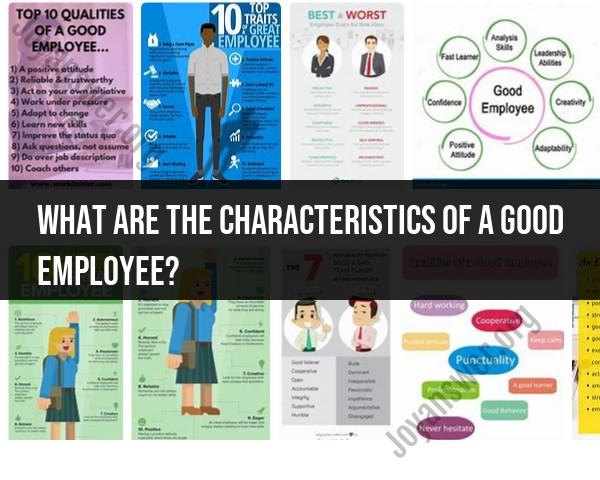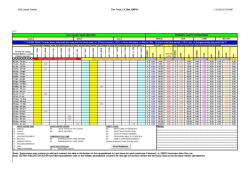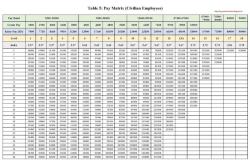What are the characteristics of a good employee?
The characteristics of a good employee can vary depending on the job, industry, and organization. However, some essential qualities are universally valued by employers. Here are key characteristics of a good employee:
Reliability: A good employee is dependable and consistently fulfills their work obligations. They show up on time, meet deadlines, and can be counted on to perform their tasks with minimal supervision.
Punctuality: Arriving at work and meetings on time demonstrates respect for colleagues and a commitment to the job.
Work Ethic: Good employees are diligent, dedicated, and motivated. They put in the effort required to meet and exceed job expectations.
Adaptability: In a dynamic work environment, employees must be flexible and open to change. They can adapt to new procedures, technologies, and responsibilities.
Effective Communication: Strong communication skills are vital. Good employees can express themselves clearly, listen actively, and collaborate well with others.
Teamwork: Employees who work effectively with others, respect diverse perspectives, and contribute to a positive team dynamic are highly valued.
Problem-Solving Skills: Good employees can analyze issues, develop solutions, and make sound decisions. They're resourceful and proactive in finding answers.
Initiative: Taking the initiative to identify and address problems or opportunities is a valuable quality. Good employees go beyond their basic job responsibilities.
Productivity: Being efficient and productive in completing tasks is important. Good employees manage their time effectively and maintain a strong work pace.
Quality Focus: They pay attention to detail and consistently produce high-quality work. They take pride in their output and seek continuous improvement.
Integrity: Honesty, ethics, and a strong moral compass are crucial. Good employees act with integrity in their interactions with colleagues, clients, and the organization.
Professionalism: They maintain a professional demeanor and appearance, and they handle workplace situations with maturity and respect.
Customer Focus: In roles that involve customer interaction, good employees prioritize delivering excellent customer service.
Leadership Qualities: Even non-managerial employees can exhibit leadership traits by taking charge of projects, mentoring others, and being role models.
Continuous Learning: Good employees are committed to personal and professional development. They seek to enhance their skills and knowledge.
Accountability: They take responsibility for their actions and own up to their mistakes when they occur. Accountability fosters trust in the workplace.
Emotional Intelligence: Understanding and managing one's emotions and recognizing and empathizing with others' emotions are valuable in teamwork and conflict resolution.
Resilience: Good employees can bounce back from setbacks, maintain a positive attitude in challenging situations, and persevere through difficulties.
Resourcefulness: They can find creative solutions and efficiently use available resources to accomplish tasks.
Cultural Sensitivity: In diverse work environments, employees who are culturally aware and respectful of differences contribute to a harmonious workplace.
It's important to note that while these qualities are valuable in most jobs, specific roles and industries may prioritize certain characteristics over others. Additionally, soft skills like communication and teamwork often complement technical skills and knowledge, making well-rounded employees more effective in their roles.
What are the attributes and traits that define a good employee?
Good employees are those who are reliable, productive, and team-oriented. They are able to meet deadlines, follow instructions, and work well with others. They are also willing to go the extra mile and take on new challenges.
Here are some specific attributes and traits that define a good employee:
- Reliability: Good employees are reliable and dependable. They show up to work on time, meet deadlines, and complete their work to a high standard.
- Productivity: Good employees are productive and efficient. They are able to get a lot of work done in a short amount of time.
- Teamwork: Good employees are team players. They are able to work well with others and contribute to the team's success.
- Work ethic: Good employees have a strong work ethic. They are motivated and eager to succeed.
- Positive attitude: Good employees have a positive attitude. They are enthusiastic and optimistic, and they are able to create a positive work environment for themselves and their colleagues.
How to identify and cultivate the qualities of an effective and reliable worker?
There are a number of things that employers can do to identify and cultivate the qualities of an effective and reliable worker.
- Hire the right people: Employers should carefully screen job candidates to ensure that they are hiring people with the right skills, experience, and attitude.
- Provide training and development opportunities: Employers should provide their employees with the training and development opportunities they need to succeed.
- Create a positive work environment: Employers should create a positive work environment where employees feel valued and respected.
- Recognize and reward good performance: Employers should recognize and reward good performance. This will motivate employees to continue to perform at a high level.
What are the behaviors and characteristics that employers value in their employees?
Employers value employees who exhibit the following behaviors and characteristics:
- Punctuality: Employers value employees who are punctual and show up to work on time.
- Reliability: Employers value employees who are reliable and dependable. They can be counted on to meet deadlines and complete their work to a high standard.
- Productivity: Employers value employees who are productive and efficient. They are able to get a lot of work done in a short amount of time.
- Positive attitude: Employers value employees who have a positive attitude. They are enthusiastic and optimistic, and they are able to create a positive work environment for themselves and their colleagues.
- Teamwork: Employers value employees who are team players. They are able to work well with others and contribute to the team's success.
- Problem-solving skills: Employers value employees who have strong problem-solving skills. They are able to identify and solve problems quickly and effectively.
- Communication skills: Employers value employees who have good communication skills. They are able to communicate clearly and concisely, both verbally and in writing.
- Leadership skills: Employers value employees who have leadership skills. They are able to motivate and inspire others, and they are able to take charge and get things done.
By hiring the right people, providing training and development opportunities, creating a positive work environment, and recognizing and rewarding good performance, employers can identify and cultivate the qualities of an effective and reliable worker.












